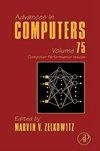因无力偿还贷款而对贷款人的法律保护
4区 计算机科学
Q1 Computer Science
引用次数: 0
摘要
数字世界发展非常迅速,在各个领域都产生了很大的影响,其中之一就是基于信息技术的借贷服务,即点对点借贷。然而,p2p借贷的实施可能会带来法律问题的风险,即贷款接收方的违约将损害在运营商平台上为贷款申请提供资金的贷款人。在这方面,下一项研究旨在识别和分析与基于点对点借贷服务的违约风险相关的贷款人的法律保护。此外,本研究还旨在解释p2p借贷中由于违约而导致的争议解决。本研究采用的研究方法是规范法律研究方法。为贷款人提供法律保护,形成特殊法规,为点对点借贷服务用户提供保护,即金融服务管理局条例第77 / POJK.01 / 2016条,特别是第37条,以及发生争议后给予的罚款、监禁和其他额外处罚等制裁。根据POJK第39条第(1)款第1/POJK,在P2PL中因违约而引起的争议的解决可以在法院外或法院内进行。07 / 2013。本文章由计算机程序翻译,如有差异,请以英文原文为准。
Perlindungan Hukum Terhadap Pihak Pemberi Pinjaman Akibat Terjadinya Gagal Bayar pada Peer to Peer Lending
The digital world has developed very rapidly and has had a lot of influence in various sectors, one of which is the presence of information technology-based lending and borrowing services, namely Peer to Peer Lending. However, it is possible that the implementation of Peer to Peer Lending carries a risk of a legal problem, namely the default from the Loan Recipient which will harm the Lender who funds the loan application on the Operator's platform. In this regard, the next study aims to identify and analyze legal protection for lenders related to the risk of default in peer to peer lending based lending services. In addition, this study also aims to explain dispute resolution due to default in peer to peer lending. The research method used in this research is normative legal research method. Legal protection for lenders with the formation of special regulations that provide protection for Peer to Peer Lending service users, namely the Financial Services Authority Regulation Number 77 / POJK.01 / 2016 in particular Article 37 and sanctions such as fines, imprisonment, and other additional penalties given after it occurs dispute. Settlement of disputes due to default in P2PL can be carried out outside or inside the court in accordance with Article 39 paragraph (1) POJK Number 1/POJK.07 / 2013.
求助全文
通过发布文献求助,成功后即可免费获取论文全文。
去求助
来源期刊

Advances in Computers
工程技术-计算机:软件工程
CiteScore
5.40
自引率
0.00%
发文量
58
审稿时长
>12 weeks
期刊介绍:
Since its first volume in 1960, Advances in Computers has presented detailed coverage of innovations in computer hardware, software, theory, design, and applications. It has also provided contributors with a medium in which they can explore their subjects in greater depth and breadth than journal articles usually allow. As a result, many articles have become standard references that continue to be of significant, lasting value in this rapidly expanding field.
 求助内容:
求助内容: 应助结果提醒方式:
应助结果提醒方式:


